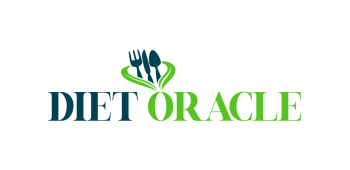Millions of people worldwide suffer from eczema, a skin disorder marked by red, itchy rashes on the skin. While Western medicine offers various treatments, Traditional Chinese Medicine (TCM) proposes a comprehensive approach that focuses on restoring equilibrium within the body. Herbal TCM therapies, based on age-old knowledge, provide natural treatment for eczema symptoms. Explore TCM methods, highlighting natural remedies for skin well-being.
1. TCM Understanding of Eczema
According to TCM, internal imbalances, usually affecting the spleen and liver, are frequently associated with eczema. Qi, the body’s life force, can be disturbed, resulting in skin problems. TCM herbal medicines address this by emphasising particular herbs targeting the underlying reasons to restore harmony.
2. Core TCM Herbs for Eczema
Huang Qin (Scutellaria Baicalensis): Huang Qin, which has anti-inflammatory qualities, relieves eczema symptoms by reducing redness and itching.
Bai Xian Pi (Dictamnus Dasycarpus): Bai Xian Pi reduces heat-related skin inflammation frequently observed in eczema cases by cooling the blood circulation.
Ku Shen (Sophora Flavescens): Ku Shen, known for its antipruritic and anti-inflammatory properties, helps to reduce eczema-related itching.
3. TCM Herbal Combinations
TCM frequently uses herbal mixtures for effectiveness. For eczema, Huang Bai, Cang Zhu, and Bai Xian Pi are a common combination. This mix presents a method for managing eczema by addressing surface symptoms and internal imbalances.
4. Patience in TCM Treatment
TCM herbal therapies take time to work since the body needs time to naturally restore balance, unlike Western drugs that promise quick relief. Patients should continuously follow the directions on herbal mixtures for a long-lasting effect on eczema symptoms.
5. Individualised TCM Treatment Plans
TCM practitioners acknowledge that every person has a distinct constitution. Creating individualised TCM regimens to target particular imbalances guarantees more successful eczema management. The fact that what suits one individual may not be appropriate for another highlights the significance of individualised TCM care.

6. External Applications of TCM Herbs
Apart from internal consumption, TCM incorporates external applications for localised relief. Herbal ointments or creams containing She Chuang Zi (Cnidium Monnieri) and Di Fu Zi (Kochia Scoparia) can be beneficial for soothing skin irritations associated with eczema.
7. Integration with Acupuncture
A good TCM for eczema is more effective when combined with herbal medicines and acupuncture. By encouraging Qi flow, acupuncture treats the underlying causes of imbalances. This all-encompassing method significantly reduces the symptoms of eczema.
8. Dietary Considerations in TCM
The importance of nutrition in preserving general health is emphasised by TCM. Avoiding oily, spicy, and overly sugary foods is advised for those with eczema. Cooling foods like cucumber and mint can help manage the symptoms of eczema in addition to herbal therapies.
9. Herbal Baths in TCM
An old-fashioned TCM treatment that might be especially calming for eczema patients is herbal baths. Herbs like Bai Xian Pi or Ku Shen, when added to bathwater, can soothe inflamed skin and reduce inflammation and irritation.
10. Consultation with a TCM Practitioner
Herbal TCM therapies can be influential, however it’s still vital to speak with a licensed TCM practitioner. For thorough eczema management, they can evaluate specific situations, recommend suitable herbal formulas, and provide advice on lifestyle changes.
Conclusion
Herbal TCM therapies offer a holistic and all-natural way to cure eczema. Effective relief is facilitated by understanding the underlying ideas, incorporating core herbs, and adhering to individual treatment programmes. In the quest for improved skin health, it’s critical to understand that TCM is a progressive process that calls for patience and persistence to produce long-lasting outcomes.
Don’t let eczema control your life. Visit Tangs Clinical TCM to learn more.

